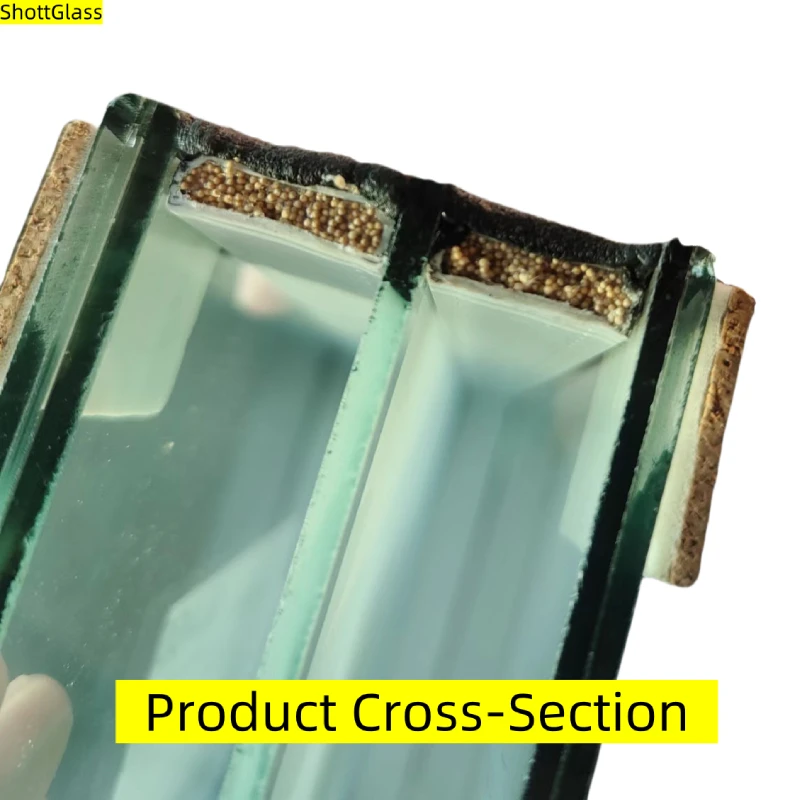Nov . 17, 2024 00:06 Back to list
laminated fluted glass
Exploring Laminated Fluted Glass A Fusion of Art and Functionality
Laminated fluted glass is an exquisite blend of aesthetics and utility, gaining popularity in architectural design and interior decor. This unique type of glass, characterized by its distinct textured surface and impressive strength, offers a myriad of applications that go far beyond mere decoration. In this article, we will delve into what laminated fluted glass is, its manufacturing process, its benefits, and its diverse uses.
Understanding Laminated Fluted Glass
Laminated fluted glass is essentially two or more layers of glass that are bonded together with a durable interlayer, usually made from polyvinyl butyral (PVB) or ethylene-vinyl acetate (EVA). The fluting process creates grooves or ridges on the surface of the glass, producing a visually appealing texture that also serves functional purposes. The term 'laminated' refers to the method of using layers of glass to increase strength and safety, making it a preferred choice in various applications.
The fluted texture not only enhances the glass’s appearance but also diffuses light effectively, creating a soft ambiance. This makes it an excellent choice for spaces where natural light is desired without sacrificing privacy.
The Manufacturing Process
The production of laminated fluted glass involves several meticulous steps. First, sheets of glass are shaped using a specialized fluting machine, creating the desired pattern. Hot air or steam is often used to ensure the glass bends properly without breaking. Once the glass has the perfect fluted design, it is cleaned thoroughly to remove any contaminants that might affect the bonding process.
Next, an interlayer is positioned between two sheets of fluted glass. The sandwich is then subjected to heat and pressure in an autoclave, which ensures the layers bond securely. This process not only increases the glass’s strength but also incorporates safety features, as laminated glass tends to stay intact even when shattered, greatly reducing the risk of injuries.
Benefits of Laminated Fluted Glass
laminated fluted glass

One of the primary advantages of laminated fluted glass is its enhanced safety. In the event of breakage, the interlayer holds the shards together, minimizing the potential for injury. Additionally, it offers excellent acoustic insulation, making it a suitable choice for buildings in noisy environments.
Another significant benefit is the glass’s ability to filter light. The fluted design creates interesting light patterns and reduces glare, making it ideal for spaces like offices, homes, and public buildings where controlled lighting is critical.
Moreover, laminated fluted glass provides thermal insulation, contributing to energy efficiency in building designs. This feature helps to regulate indoor temperatures, reducing reliance on heating and cooling systems.
Applications of Laminated Fluted Glass
The versatility of laminated fluted glass lends itself to a variety of applications. In residential spaces, it is frequently used for bathroom windows, shower enclosures, and partitions, providing privacy without compromising natural light. In commercial settings, it can be found in office partitions, storefront windows, and sliding doors, where both style and functionality are paramount.
Architects and designers are increasingly incorporating this type of glass into facade designs, leveraging its visual appeal to create striking exterior features. From contemporary homes to traditional establishments, laminated fluted glass adds a touch of elegance and modernity.
Conclusion
Laminated fluted glass stands at the intersection of beauty and practicality, making it an essential material in contemporary architecture and design. Its unique appearance, combined with exceptional safety features and versatile applications, positions it as a favored choice among architects, designers, and homeowners alike. As the demand for innovative building materials continues to grow, laminated fluted glass will undoubtedly play a pivotal role in shaping the spaces of the future. Whether it’s for aesthetic enhancement or functional benefit, this remarkable glass type deserves recognition in the world of design.
-
Safety and Style with Premium Laminated Glass Solutions
NewsJun.24,2025
-
Reinvents Security with Premium Wired Glass
NewsJun.24,2025
-
Premium Float Glass Line for Modern Architecture
NewsJun.24,2025
-
Low Emissivity Glass for Energy-Efficient Architecture
NewsJun.24,2025
-
High-Performance Insulated Glass Solutions for Modern Architecture
NewsJun.24,2025
-
Elevates Interior Style with Premium Silver Mirror
NewsJun.24,2025
Related PRODUCTS














